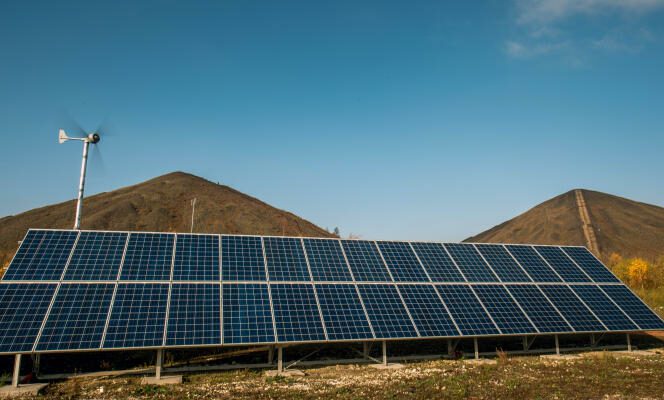Will the results be up to the challenges? This is the fear of industrialists and NGOs concerning the law for the acceleration of renewable energies (ENR), which must be voted on at first reading by the deputies, Tuesday, January 10. For often diametrically opposed reasons, both agree at least on one point, these new rules lack ambition. “We do not have the strong support for renewable energies that we expected in view of the climate crisis and the current energy crisis”deplores Zélie Victor, in charge of the energy dossier at the Réseau Action Climat. “REs are nothing to be ashamed of”advances for his part Jules Nyssen, the boss of the Union of Renewable Energies, disappointed that this feeling accompanied by fear has often taken over during the examination in the National Assembly, in December 2022. “It is also a way to create hope for young people with the key, also, job creations”, he likes to recall.
In this general panorama, however, industrialists see cause for satisfaction, at least at this stage, that of progress in offshore wind power. In their eyes, the obligation imposed on the State to define, by in 2024, a map of the settlement areas should provide medium-term visibility. ” We feel a clarification. A real acceleration in this sector”, underline several energy companies, confident in the idea of meeting the deadlines set by Emmanuel Macron during his speech in Belfort, in February 2022. Namely, the installation of 50 wind farms at sea by 2050. “ The subject is less tense than onshore wind power, because it only concerns four seafronts, fewer locations are concerned”, considers for his part Jules Nyssen, which does not exclude that movements of discontent persist among the fishermen in Brittany.
On land, where wind power should see its capacity double by 2050, progress looks more uncertain. Many industrialists welcome the fact that the veto by mayors, a measure that had been defended by the right, has been abandoned. Even if, as a replacement, the definition of priority acceleration zones raises questions about its real scope. “Elected officials will be able to say where they wish to install onshore wind turbines, concedes a large industrialist. However, the concern remains the length of the consultation process, which raises fears of a lot of loss. » For his part, Pierre Cannet, director of advocacy for the World Wide Fund for Nature (WWF), also regrets the “complexification that planning will generate, between the roles devolved to the regions, departments and, ultimately, the mayor who will have the final decision”.
You have 47.73% of this article left to read. The following is for subscribers only.
